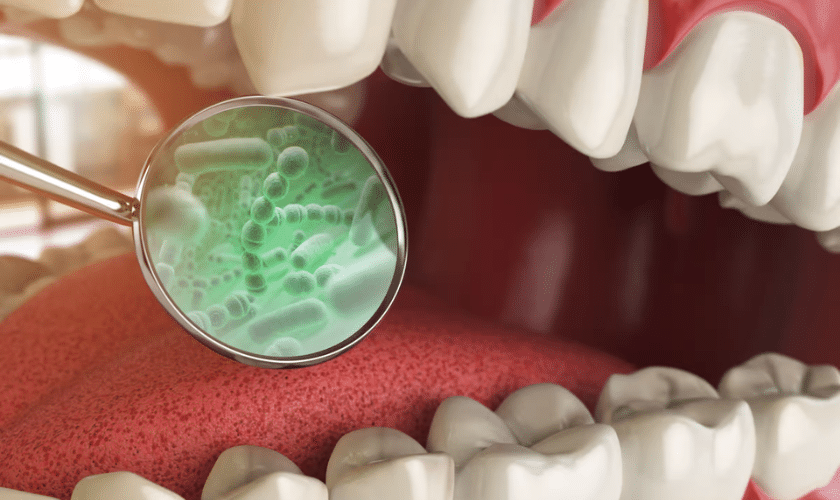Published on August 8, 2024

Ever wondered why your mouth feels off or why those pesky infections keep recurring? It might be more than just bad luck. Mouth infections are often caused by bacteria that thrive in your oral environment. Understanding which bacteria are behind these infections can make a big difference in how you tackle and prevent them.
In this blog, we’ll dive into the world of mouth infections and uncover the most common bacteria responsible for these unwelcome visitors. We’ll explore how these bacteria impact your oral health and what steps you can take to keep them at bay.
Ready to get to the bottom of your mouth’s troubles? Let’s get started!
Understanding Mouth Infections
Mouth infections can disrupt your daily life, causing pain and discomfort. They often stem from bacteria that flourish in the oral cavity. Knowing the types of bacteria that lead to these infections helps in effective treatment and prevention.
Streptococcus Mutans: The Major Culprit
Streptococcus mutans is a primary player in tooth decay. This bacteria thrives on sugars from food, producing acids that erode tooth enamel. When the enamel weakens, cavities form, leading to potential infections if left untreated.
Porphyromonas Gingivalis: The Gum Invader
Porphyromonas gingivalis is a key bacterium involved in periodontal disease. It resides in the gum pockets, causing inflammation and damage. This bacteria disrupts gum health and can lead to more severe oral health issues if not addressed.
Fusobacterium Nucleatum: The Partner in Crime
Fusobacterium nucleatum is often found alongside other bacteria in cases of severe gum disease. It contributes to the formation of plaque and tartar, aggravating gum inflammation. Managing this bacteria involves maintaining good oral hygiene and regular dental check-ups.
Prevotella Intermedia: The Inflammatory Agent
Prevotella intermedia plays a significant role in gingivitis and periodontitis. It produces substances that enhance the inflammatory response in the gums. Controlling this bacterium requires a combination of good oral hygiene and professional dental cleanings.
Managing and Preventing Mouth Infections
Preventing mouth infections involves both daily practices and professional care. Here are some key strategies:
- Daily Oral Hygiene: Brush twice a day and floss daily to remove food particles and plaque.
- Regular Dental Visits: Schedule check-ups every six months to catch and address issues early.
- Balanced Diet: Reduce sugar intake to limit food sources for harmful bacteria.
- Hydration: Drink plenty of water to help wash away food particles and bacteria.
When to Seek Professional Help?
If you notice persistent symptoms such as bad breath, swollen gums, or pain, it’s crucial to consult a dentist. These could be signs of a bacterial infection that needs professional intervention. Early diagnosis and treatment can prevent complications and promote better oral health.
Understanding Treatment Options
Treatment for mouth infections depends on the specific bacteria involved. Common approaches include:
- Antibiotics: Prescribed to target specific bacteria causing the infection.
- Scaling and Root Planing: A deep cleaning procedure to remove plaque and tartar.
- Antiseptic Rinses: Help in reducing bacterial load and promoting healing.
Each treatment plan is tailored to the individual’s needs, based on the severity and type of infection.
Maintaining Long-Term Oral Health
Maintaining long-term oral health is about consistency. Regular brushing, flossing, and dental check-ups are key. Being proactive with oral hygiene can help prevent the recurrence of infections caused by harmful bacteria.
By understanding the most common bacteria involved in mouth infections and how to manage them, you can take proactive steps towards a healthier mouth. Keep up with good oral practices and consult your dentist regularly to stay on top of your oral health.
Understanding the most common bacteria responsible for mouth infections helps in better management and prevention. By maintaining good oral hygiene, reducing sugar intake, and seeking regular dental care, you can minimize the risk of these infections. If symptoms persist, don’t hesitate to consult a dentist for timely treatment. Stay informed and proactive to ensure a healthier, happier smile.
